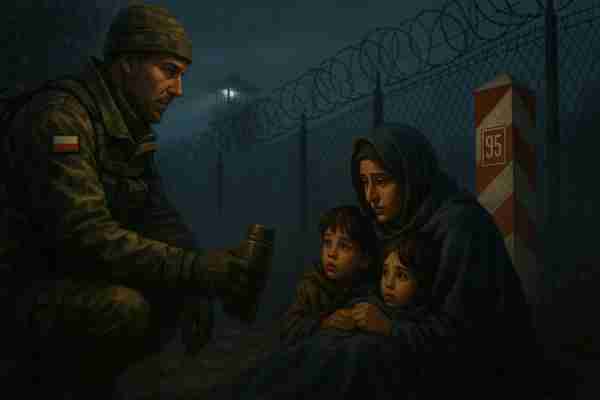When the first autumn frost settled on the undergrowth of the Białowieża Forest, Sergeant Marek Kamiński already knew—it would be a restless winter. Months earlier, reinforcements had arrived at their post: new soldiers, armored vehicles, and night vision cameras. Poland’s eastern border had changed—tense like a drawn string. Marek had served on the border with Belarus for fifteen years. He remembered the times when a shift meant silence and woods, a distant train horn, and the cries of cranes. But now, everything was different. Each day they detained dozens of migrants—exhausted, frozen, sometimes unconscious. Many spoke neither Polish nor English. Only hope in their eyes—and sometimes fear. The border was fortified—metal fences rose along forest trails, drones buzzed overhead. Warsaw had ordered: let no one through. This was not only about protecting the country, but about showing resolve—and Marek understood that. But each new shift weighed heavier. One night he heard soft crying. Approaching, he saw a woman with two children huddled beneath the barrier, wrapped in one blanket. Marek called for backup, but before the medic arrived, he gave the children his thermos of tea. 'One must not lose humanity,' he told himself. At home, his wife—a history teacher—and son were waiting. 'Dad, why do they want to come through our country?' his son asked. Marek didn’t know how to explain. He himself wasn’t sure. Where is the line between orders and conscience? That night he realized—he was not just a soldier. He was a witness of an era where borders are no longer lines on a map, but real barriers between people. And in these shadows over the eastern border—he had his place, his choice, his story.
Shadows over the Eastern Border

Published : 07.07.2025
